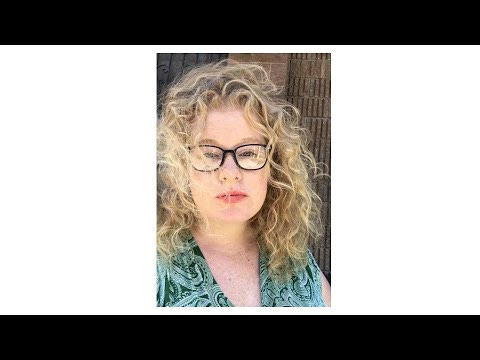"An Alternative Space to Talk About Motherhood." A Chat with Meg Lemke, Editor of Mutha Magazine
Editor of motherhood-oriented magazine takes us inside
TGIF, friends! And another interview has wrapped.
Today I had the joy of speaking with Meg Lemke, Editor of Mutha Magazine. These editors are “interested in reading nonfiction about all aspects of the journey to becoming a parent (or determining a different path).”
Mutha publishes literary essays on the subject of parenting, as well as comics and very occasionally poetry. They seek work that addresses birth, loss, raising children, trying to become pregnant, foster families, queer families, IVF, deciding to not have children, and much more. If you have an essay on this topic that is authentic, honest, possibly humorous, and/or strongly opinionated, this could be the place to send it.
Meg’s journey to Editor began with her working first at a literary agency, then as a book editor while also volunteering at the Brooklyn Book Festival, meeting other editors and writers. Now, she works as Graphic Novels Review Editor for Publishers Weekly. Somewhere along the way she had gotten to know Michelle Tea, who founded Mutha Magazine. After a conversation with Michelle at Book Expo, Meg joined the editorial team.
In her current role, Meg is the first reader on every submission that comes in. What sort of work is best for the magazine? Meg stated a preference for work that is not prescriptive, which doesn’t tell other parents what to do, which isn’t judgmental, and which is unconventional. This is not a place to send your essay that emphasizes traditional gender roles, or that offers pat and simplistic narratives about parenting. It’s also not a place to send an instructive piece on how to heat a bottle or shop for diaper bags.
On the other hand, if you have a piece that uses the “How to Heat a Bottle” structure to tell a deeply personal story about loss, then this could be the right home. Meg is indeed interested in experiments with form.
On the subject of loss, I asked Meg how she manages seeing so many difficult stories. As the first person to look at every submission that comes in, and with an entire section of the magazine dedicated to this topic, I imagine Meg sees some incredibly painful pieces. How does she cope?
Meg responded that she wants to see it all. That’s what she’s there for. Some people talk about Too Much Information (TMI)? Meg said, “I’m here for all the ‘I’!” She described herself as having a high threshold for the difficult.
A common editing suggestion she makes when working with writers is to take out last lines that try to tie things up neatly. Many readers come to the magazine for pieces that are sharp, searing, complex and not necessarily tidy.
Of course, there are always the pieces about birth that end with a baby in someone’s arms. And that’s a happy ending that will never be edited out. In fact, just discussing this baby-in-arms completely derailed me for a moment, and I forgot about every other question I planned to ask.
Needless to say, Meg and I had a good chat about lots of mama things. The cry-it-out versus wait-it-out debate, the nurse-forever or bottle-feed, and more broadly why on earth there is so much noise and opining around all of these issues, and why it’s so important to have a space for parents (or related to parenthood) where people can find some relief, humor, clarity, joy, comfort and just be themselves.
This magazine is open for submissions pretty much always. (Be sure to check, as the editors are working parents, and sometimes submissions close during school holidays.) Response time is generally four-six weeks.
Meg actively wants to hear from more writers of color and also wants more comics submissions. Writers can also get involved by interviewing authors of parenting-themed books.
To everyone who came out today, thank you for attending. Your faces are the sugar in my coffee, the gallop in my heart!
And thank you to Meg for taking the time to tell us about another important little magazine.
Happy viewing!
Some pieces Meg mentioned in our interview:
Gina Frangello as example of a more reported piece that interweaves memoir
And a similar one from Amanda Montei
Robyn Jordan's pandemic comics series
Jade Sanchez-Ventura's work: here and here
Nefertiti Austin on Adoption’s #PARENTINGSOWHITE Problem
A Deduction: What Motherhood Takes Away (PS This is Actually Fanfic)
Cheryl Klein's series on adoption
Meg’s coverage of books/film




Very very interesting discussion of the connections between maternity and writing. But why are there no such conflations between Fatherhood and Writing? It must come from the simple notion that mothers take care of their babies all day and need to find the time to write, that writing is a sort of 'finding your own self' after spending a whole day taking care of someone else. But I think there's something else here. Writing is intself a form of mothering, a giving birth to characters and worlds. It was a fascinating discussion that raises many philosophical and psychological issues. Is it possible to tell just from the text whether a writer is female or male, mother or father? Can one tell from the text itself whether the writer has a child?